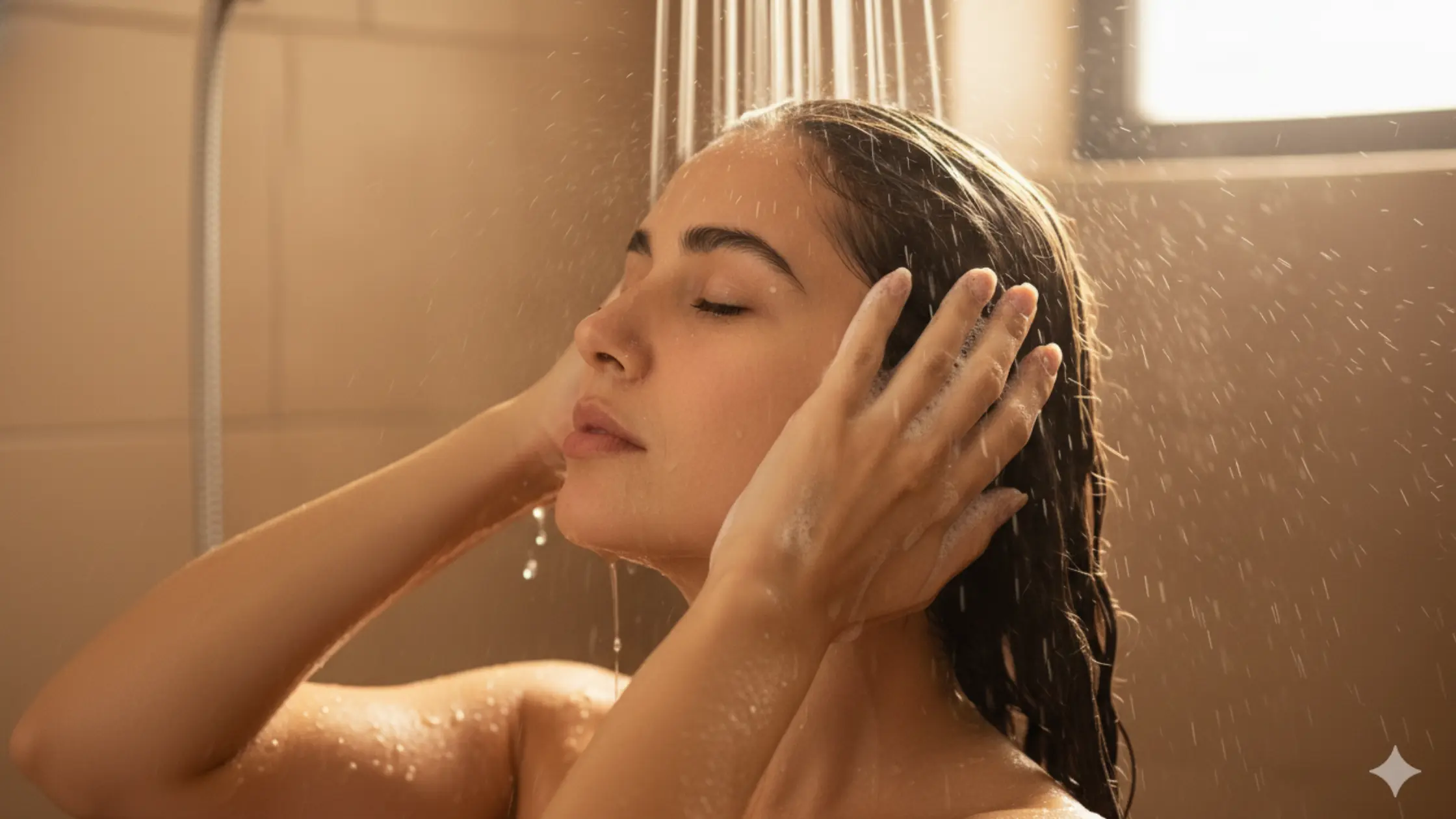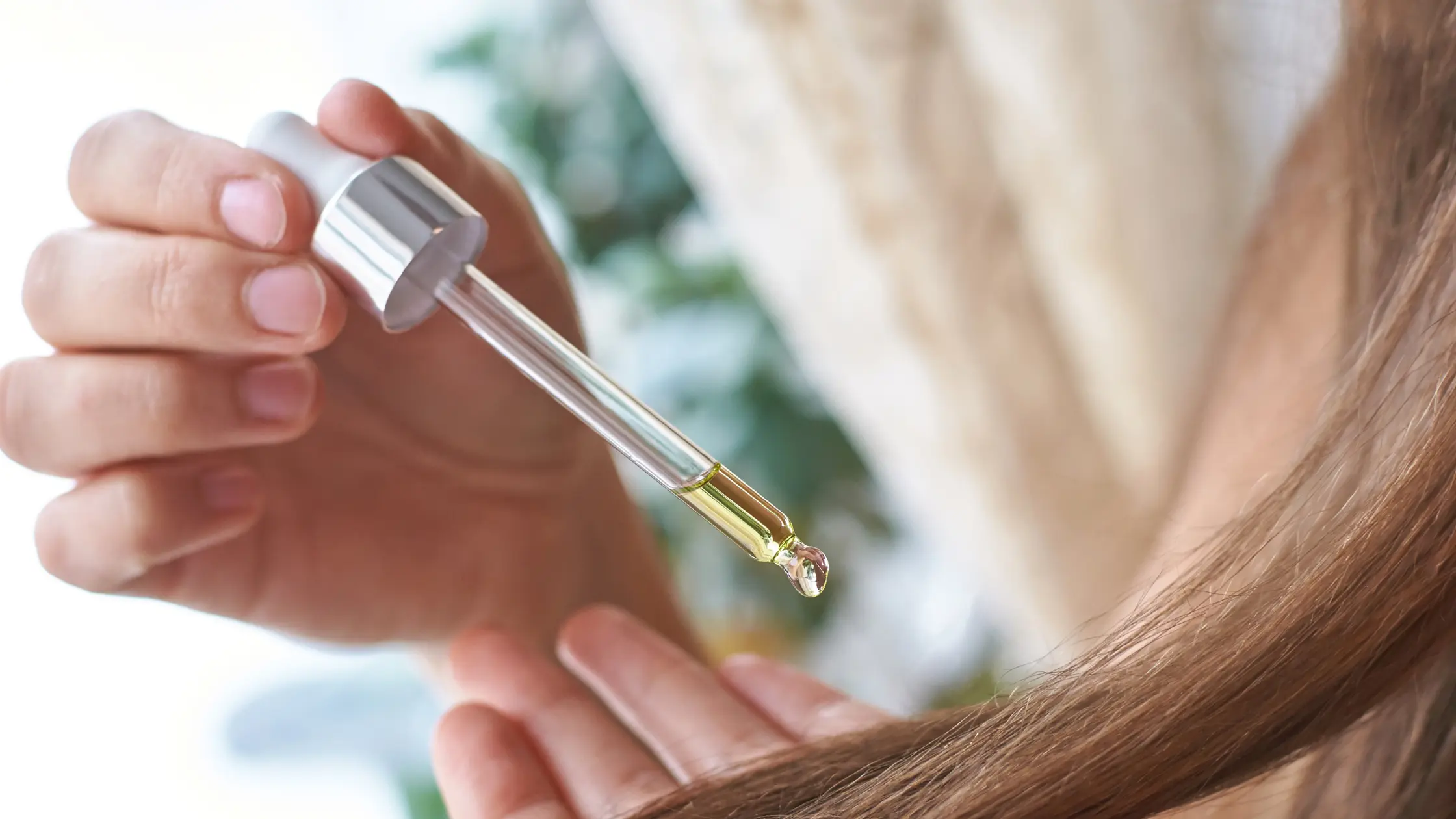For many of us, a long, hot shower feels like therapy, the steam, the warmth, the relaxation. But here’s the catch: what feels like self-care might actually be self-sabotage for your hair. According to dermatologists and trichologists, those steamy sessions could be quietly contributing to dryness, scalp irritation, and even increased hair fall.
So, should you trade your hot shower for a lukewarm rinse? Let’s unpack what experts have to say and how you can save your strands without sacrificing your shower ritual.
How Hot Water Affects Your Hair & Scalp Health?
When water is too hot, it doesn’t just rinse away dirt and product buildup, it strips away your scalp’s natural oils, known as sebum. Sebum is crucial for maintaining a healthy scalp barrier, locking in moisture, and protecting your hair from breakage.
Dr. Wajid Ali Anwar, a hair loss specialist at UK Hair Transplants, explains that excessively hot showers can inflame the scalp and damage the protective outer layer of both hair and skin. This can lead to dehydrated hair strands that feel brittle and rough, a dry, itchy, or flaky scalp that mimics dandruff, and increased hair shedding due to inflammation or weakened roots.
Essentially, hot water acts like a harsh detergent, it cleans too well. Without those natural oils, the scalp becomes irritated, triggering the body’s inflammatory response, which can temporarily push hair into the shedding (telogen) phase.
Why Hot Showers Can Make Your Hair Fall Out?
While hot water won’t cause permanent baldness, it can make hair appear thinner over time. When the scalp barrier is compromised, the follicles struggle to produce healthy, strong strands. Combine that with existing issues like hormonal hair loss, stress, or poor nutrition, and you’ve got the perfect recipe for limp, lifeless hair.
Dr. Anthony Farole, a cosmetic surgeon who has studied the effects of heat on hair, adds that hot showers won’t directly cause hair loss, but they do make the hair shaft weaker and more prone to breakage.
Each strand of hair is protected by a layer of overlapping cuticles, think of them like roof shingles. When you wash your hair with very hot water, these cuticles lift and open, allowing moisture to escape. Once they lift, they don’t always close back completely, leaving hair looking dull and frizzy.
Over time, this process breaks down keratin, the structural protein in your hair, leading to more split ends, tangles, and breakage. The scalp also reacts by producing more oil to compensate for dryness, a vicious cycle that can make your roots greasy and your ends parched.
The Ideal Shower Temperature for Healthy Hair
Experts suggest keeping your shower temperature between 37°C and 39°C (98°F–102°F) warm enough to feel soothing, but not so hot that it strips your scalp.
Here’s how to create a hair-healthy shower routine:
- Start warm, finish cool. Use warm water to cleanse and open up the scalp, then end with a cool rinse. The cold water helps seal the cuticle, locking in moisture and adding shine.
- Use a gentle, sulfate-free shampoo. Sulfates amplify the drying effect of hot water. Look for formulas with hydrating ingredients like aloe vera, ginseng, glycerin, or argan oil.
- Condition from mid-length to ends. Avoid applying conditioner directly to the scalp; focus on the parts of your hair that need moisture the most.
- Avoid vigorous towel drying. Instead of rubbing, gently squeeze out excess water with a microfiber towel or a soft cotton T-shirt.
- Limit heat styling afterward. If you’ve already exposed your hair to warm water, skip the blow dryer or flat iron when possible.
- Your scalp is skin too and it needs as much care as your face. Regular scalp massages with lightweight oils like jojoba or rosemary oil can boost circulation, support hair growth, and help restore balance after heat exposure.
- You can also incorporate clarifying treatments once a month to remove buildup without stripping your scalp dry. Look for ingredients like apple cider vinegar or coal tar or salicylic acid that gently exfoliate and rebalance pH.
Over To You
Hot showers might feel heavenly, but they’re not exactly angelic for your hair. While they don’t cause permanent hair loss, consistent exposure to high temperatures can strip essential oils, inflame your scalp, and make your hair prone to breakage.
The good news? The solution doesn’t require giving up your showers, just adjusting the temperature and showing your scalp some extra love to your hair and scalp to protect your hair from falling out due to hot showers.








